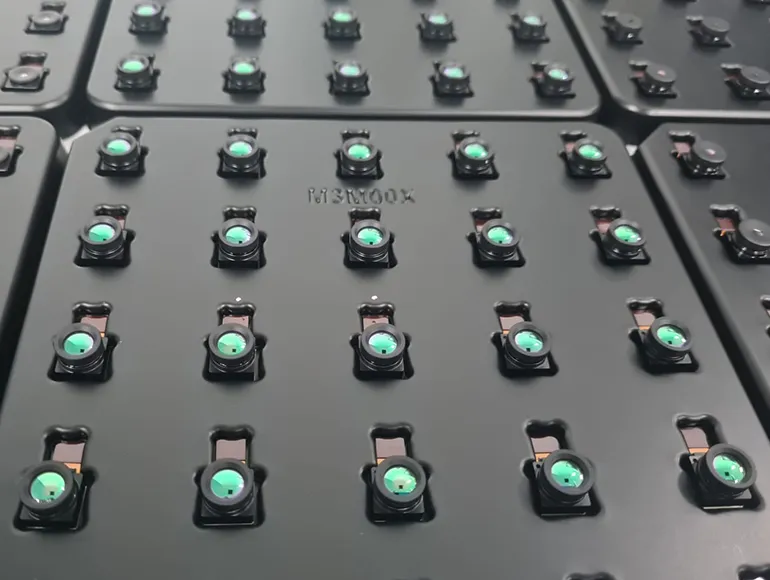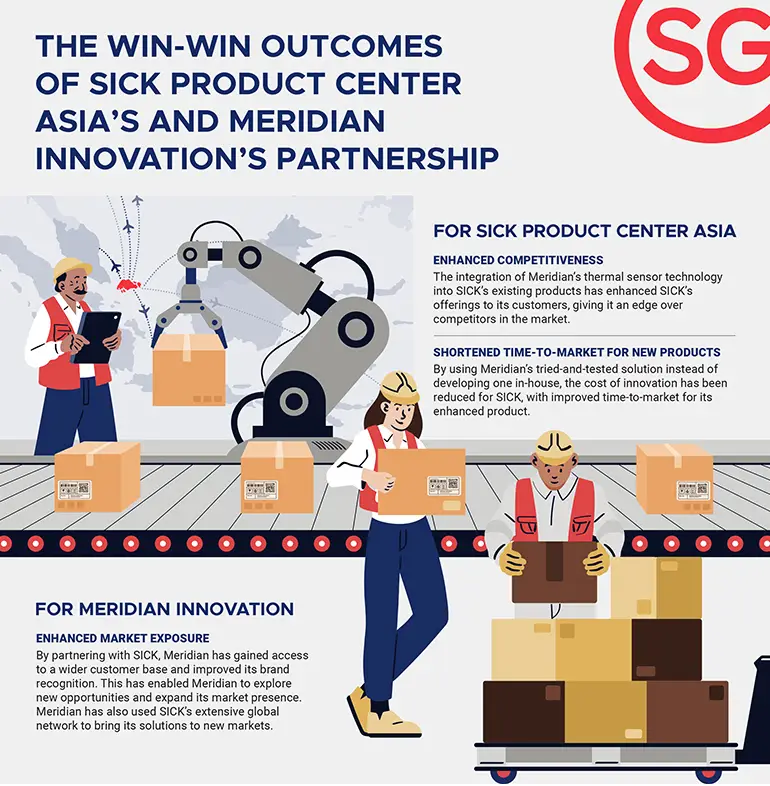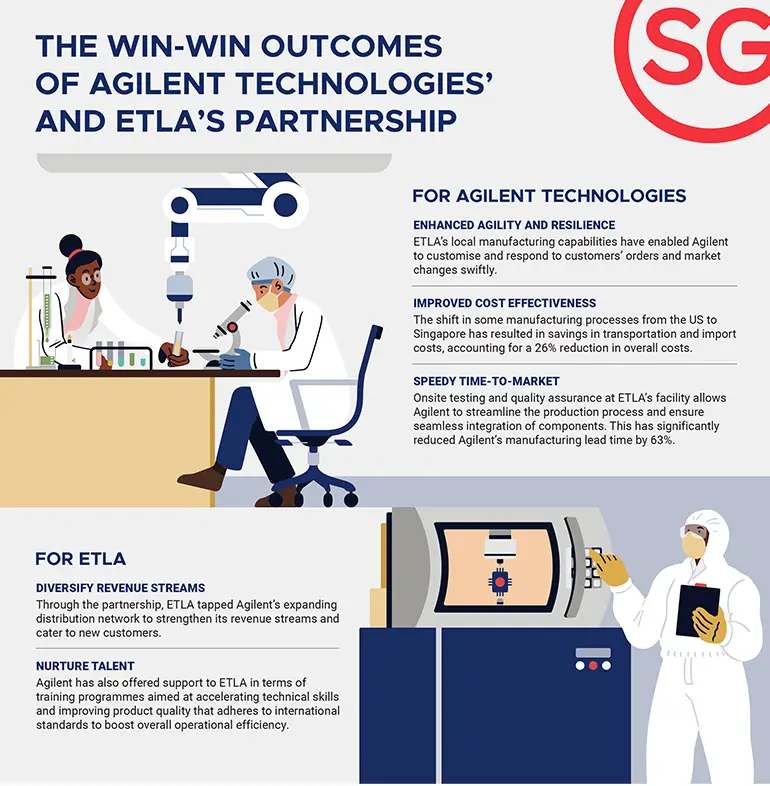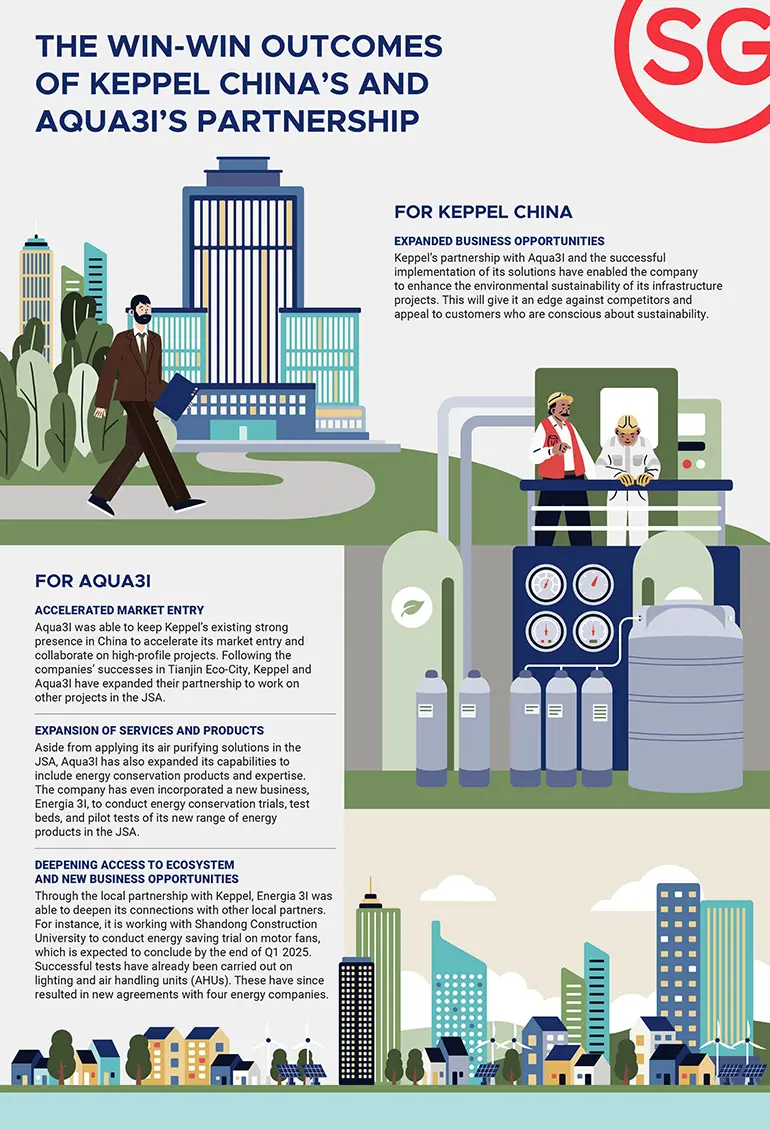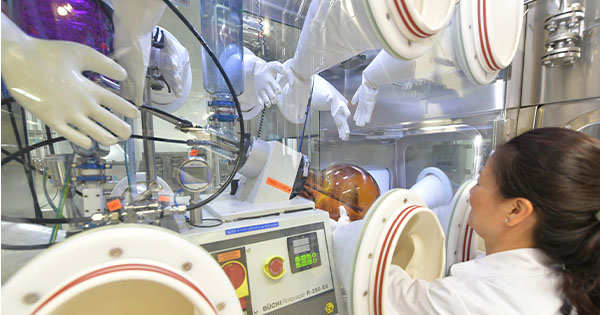Singapore's 286,000 SMEs, approximately 4,500 tech startups1 and network of R&D players including around 78 public research institutions in Singapore2; offer MNCs a rich pool of potential partners to solve pressing business challenges.
MNCs can also benefit from the range of open innovation platforms in Singapore.
Read about three successful partnerships:
SICK Product Centre Asia and Meridian Innovation: Solving industrial manufacturing pain points with thermal imaging
THE PARTNERSHIP
Manufacturers of delicate electronic components often struggle to prevent heat damage to components during the production process. Potting, a technique that involves coating and encapsulating components in resin, can help protect against heat but requires precise temperature control.
SICK Product Center Asia (SICK), a German leader in sensor technology, wanted an innovative solution to address this industry pain point. It managed to develop one through a collaboration with Meridian Innovation (Meridian), a Singapore-based company specialising in thermal imaging.
By incorporating Meridian’s thermal imaging technologies into SICK’s production process, SICK can now rely on precise thermal imaging sensors – which provide accurate heat pattern recognition – to ensure that its manufacturing process is stable and optimised.

